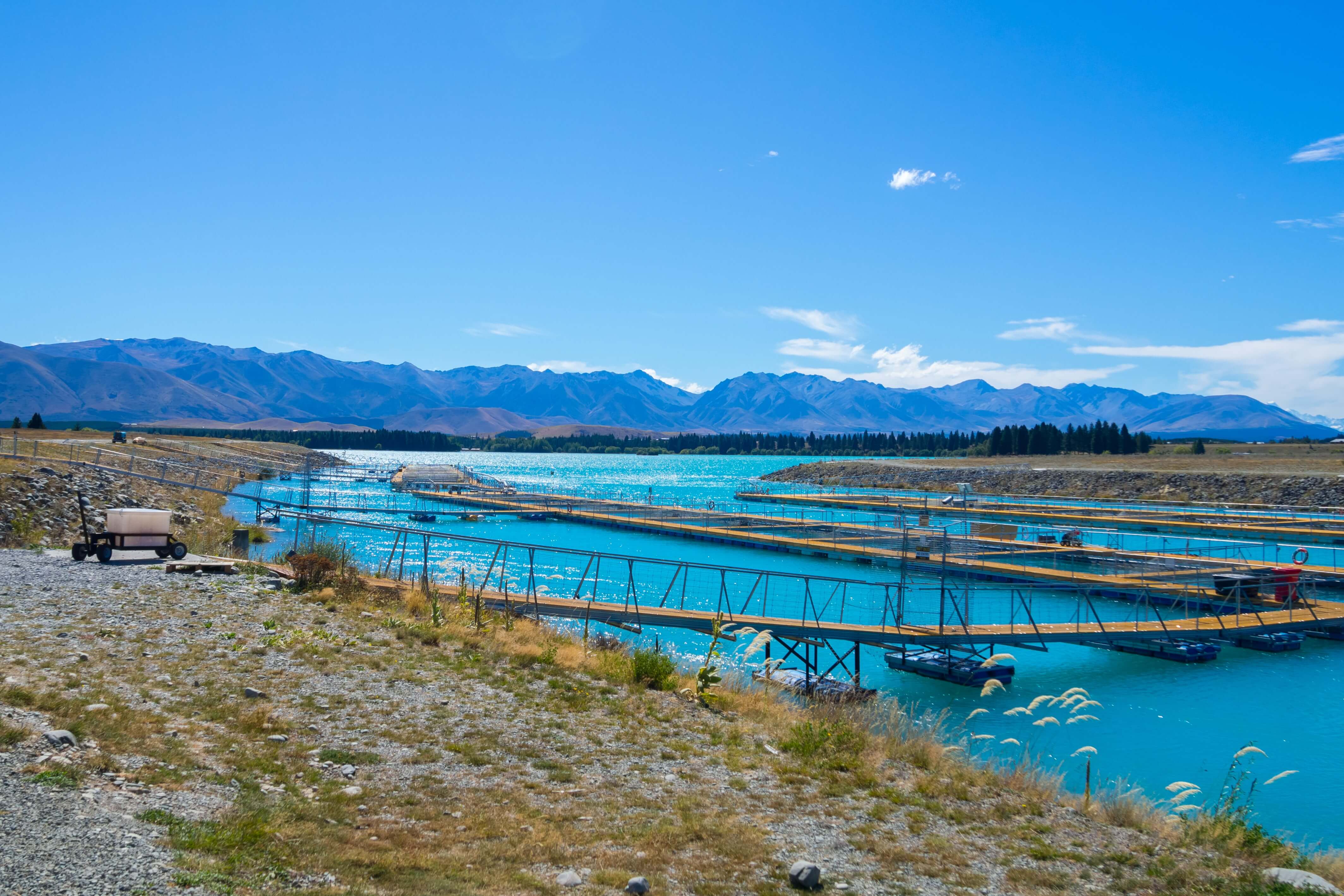The demand for salmon continues to soar as it drives the expansion of aquaculture. For many years, conscientious consumers have been advised by the environmentalists to keep away from farmed salmon, but things have begun to change due to the evolving industry. Salmon is rich in protein as well as omega-3 fatty acids which are ideal for your heart’s health. As a result, salmon has increasingly been marketed as a healthy product for consumption. The demand for salmon has increased more than 20% in the past years while consumption is much higher than it was in the eighties. Despite these promising numbers, many people still question the viability of salmon farming. To understand whether or not salmon farming is sustainable, here is what you need to know.
Aquaculture Then and Now:
Aquaculture, the practice of raising seafood within a controlled setting, has been around for many years. This practice was used by the Australian indigenous people and people from the Roman Empire. In China, aquaculture during the Tang Dynasty resulted in the mutation which created goldfish which is now used as a ubiquitous pet in homes.
Currently, the aquaculture industry is one of the fastest growing sectors in the entire world. The natural fisheries have placed limitations on the number of fish that can be caught during a particular period of the year. As an alternative, fish farming has offered consistent and large quantities of seafood and fish. The addition of aquaculture stock including oysters and salmon has been instrumental in meeting the current demands for seafood, making aquaculture a more sustainable practice.
Today, aquaculture and Salmon farming plays an instrumental role in the economy, offering numerous job opportunities in the operations as well as the ancillary services. The Environmental Defense Fund states that exports of global fisheries now earn more revenues as opposed to any other traded food component such as coffee, cocoa, and rice. This aspect illustrates the sustainable aspect of aquaculture and farmed salmon.
What are the Misconceptions?
The farmed salmon industry faces so much negative perception, most of which is brought about by the media hype. One of the greatest misconception people have about farmed salmon is that doesn’t offer the same nutrient quality as the wild salmon. Nevertheless, just like the wild salmon, it is imperative to not that farmed salmon has low saturated fat as opposed to other kinds of proteins. Moreover, the rich, pink hue of this kind of fish is created from natural compounds found in their feed. As mentioned earlier, one of the advantages of farmed salmon is its provision of the beneficial omega-3 fatty acids which can be seen in most wild salmon varieties. Through a number of independent studies undertaken by the National Cancer Institute, FDA, and other reputable companies or organizations, PCB levels evident in the wild and farmed salmon are safely under the tolerance levels that the FDA has set.
Apart from the nutritional misconceptions, there’s some sort of confusion among the public regarding the environmental impact of salmon farming and the feed conversion processes. According to recent studies, the feed conversion ratio of farmed salmon is quite lower compared to the wild salmon. Moreover, the extensive water testing evident in salmon farming has shown that the farming process doesn’t negatively affect the water’s overall quality.
Low Impact on the Environment:
According to studies conducted by the National Oceanic and Atmospheric Administration, aquaculture has less impact on the environment. If anything, this practice can benefit rather than destroy the environment. This is because practices such as salmon farming can be conducted using practices which don’t harm the environment. That way, it becomes possible to meet the ever-growing demand for seafood, thus supplementing the fish that has been harvested in the wild.
Although there are documented issues associated with fish farming such as the use of chemicals, water pollution, and threat to natural fish, farmed salmon among other kinds of fish farming is a sustainable solution to the depletion of wild fish.
Offshore Expansion:
One of the advantages of salmon farming is its flexible nature. To promote sustainability, salmon farming salmon can be moved from nearshore onto land. The ocean is large and there are massive opportunities for farmers to expand the practice in different locations. Farming can be done on land or taken further offshore where the impact on the environment is minimal because farming is done in an open water body where waste can be carried further beyond the sea.
However, this can be capital intensive because farmers need systems that are physically stronger to manage the challenges brought about by wave action and wind. As the industry continues to expand, chances are farmed salmon will be moved out into other environments. Given the current trends in technology and innovation, it will not be surprising to see farmed salmon taking the world by storm. Where the practice is today portrays some massive steps from where the practice was some years back, a clear indication that salmon farming is bound to take the world by storm in the coming years.
The Future of Farmed Salmon:
When visualizing the future of fish farming, it is imperative to establish different components in connection to the practice. Some of these include its environmental impact, its effect on health, and its sustainable aspect. With regard to sustainability, as the demand for protein continues to grow, their production will continue to increase. In such a case, nutritionists will be looking at practices as salmon farming to see how they will continue to provide the much-needed protein. And despite the various challenges associated with farmed salmon, it is imperative to note that aquaculture is an efficient way of producing protein. In that regard, salmon farming leads the way when it comes to innovation in the field of aquaculture, offering a solution to the global problem of protein production. To attain the goal of sustainability, it is important for salmon farmers to continue utilizing new innovation and eco-friendly techniques which have a lesser impact on the environment.
Final Word:
Aquaculture has been one of the most dependable practices for providing seafood and ensuring the provision of much-demanded protein. Generally, farmed salmon is a sustainable practice and an excellent alternative to wild fish.
Read Also:






















